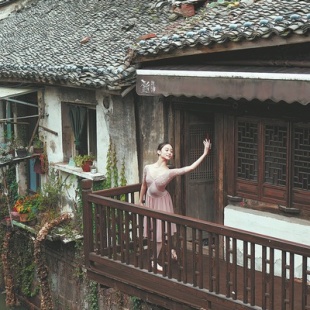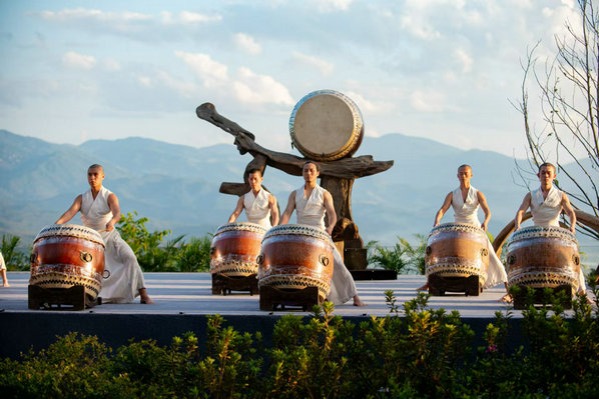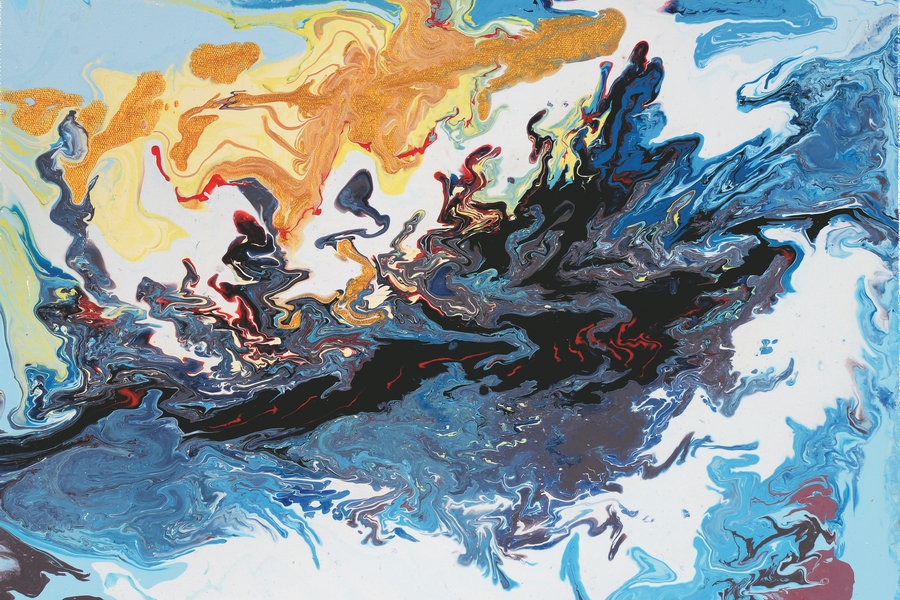Dancing in the streets
Festival brings art form from the stage to the people in an innovative approach, Wang Xin reports in Shanghai.

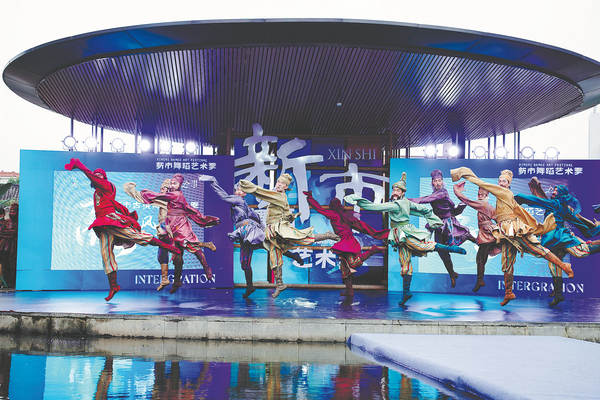
Dance is making huge strides in popularity as practitioners of the art form dig deeper into local cultures to transcend boundaries and explore innovative presentations.
During the Xinshi Dance Art Festival, held last month in Xinshi ancient town, Deqing county of Huzhou, East China's Zhejiang province, fusion and "environmental dance" stole the show.
Featuring diverse performances and cultural activities that blended dance with the local cultural landscape, the festival showcased an inspiring presentation set against the backdrop of the ancient town's natural, ecological and cultural landscape.
Dancers came out of theaters, blended into the environment and performed among the delighted, if somewhat surprised, audience.
The waterways, stone roads, ancient bridges and homes became their stage. Residents and visitors were offered a variety of contemporary, classical, folk and ballet dances.
Xinshi ancient town was founded over 1,700 years ago and is now home to the Zi Huayun Dance Art Museum, which local authorities opened in June. The museum was established in memory of the late well-known dancer and academic Zi Huayun (1936-2014), who wrote books such as Choreoecology and was recognized for her discipline in dancing and writing.
Wang Lei, Zi's daughter, initiated the festival, donating more than 200 of Zi's items to the museum. The festival hopes to organize more cultural events, such as freestyle performances, seminars and open lectures, to popularize dance further and enhance its innovative integration with culture and nature, according to Wang.
"The 'environmental dance' is one of the artistic practices based on my mother's theoretical book Choreoecology. The festival offered artistic, academic and social values and we hope to continuously enrich it, drawing more people to join us, get into nature and enjoy the dancing together," she says.
"Environmental dance" is an innovative presentation of art in China that differs from that in the West or other places. In addition to natural landscapes, it often emphasizes the connection between performers and Chinese traditional cultures, according to Feng Shuangbai, president of the China Dancers Association. It is not about taking a finished dance and placing it directly in a natural environment, but about creating or prompting a dance in a specific environment. "This requires dancers to put their body movements, emotions and hearts into the creation," Feng says.
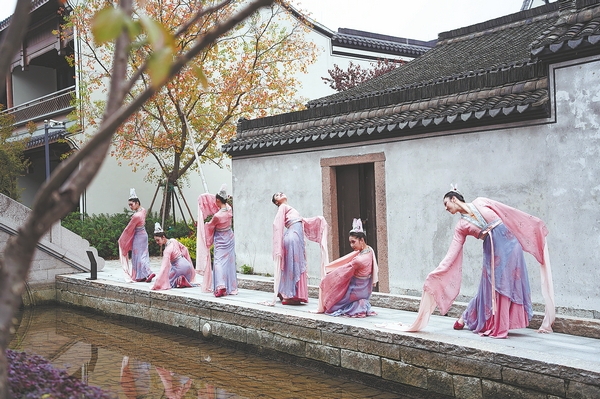
Dancing, as an art form, was born in connection with land, nature and life, he says. "When we are talking about China's 'environment', we are not only talking about the external environment but also the 'unity of humans and heavens'," Feng says, adding that this type of dance aims to advocate for a new attitude toward life in an artistic way — to lead people to rethink their lives, needs, and the meaning and value of life.
Since ancient times, dance has been an important format for human beings to express their emotions and convey their thoughts, according to Luo Bin, vice-president of the association. "We believe that the integration of dance rhythms and the scenery of the ancient town will create an incomparable harmony, which will draw more people to explore its unique charm," Luo says.
He adds that this type of dance, combined with natural and humanistic environments, will broaden the artistic boundaries of dance and bring new experiences to audiences.
During the three-day festival, residents of Xinshi ancient town enjoyed a dance feast as performers from across China appeared, literally, on their doorsteps and invited them to join in and express themselves.
The public's participation in dance has not come about by accident. In recent years, several dance dramas inspired by traditional culture and stories have become big hits inside and outside the nation.


